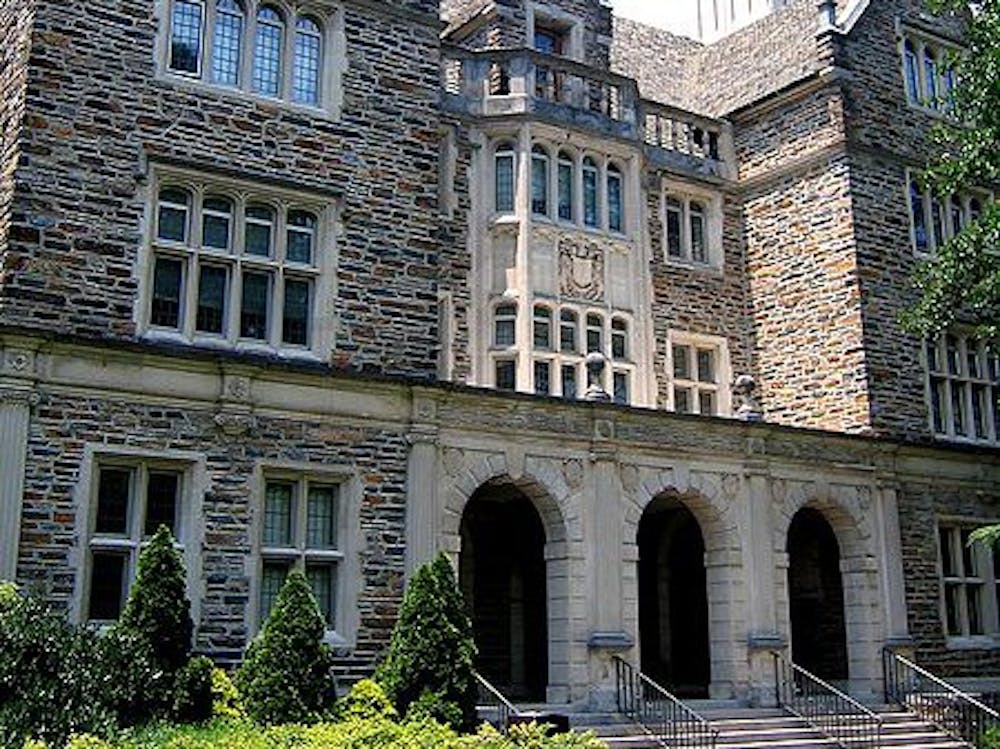Move over Germanic Languages and Literature. German Studies are here to stay.
At the Arts and Sciences Council meeting Thursday, faculty approved a name change for the current Department of Germanic Languages and Literature, discussed updates to the course evaluation process and heard from students about how Duke Student Government works.
New name, same department
Following up on a debate from their last meeting, faculty heard a presentation on changing the name of the current Department of Germanic Languages and Literature to the Department of German Studies.
In the presentation, Department Chair Stefani Engelstein pointed to peer institutions—including Brown University, Cornell University and the University of Chicago—which all have some variation of "Department of German Studies," as their official department name.
She argued that the name change would bring Duke in line with these other universities, and better align with how the department works.
"The discipline no longer focuses exclusively on literature and language," the presentation read.
Engelstein also argued that the old name may have isolated the Department of German Studies from other departments at Duke, whose names have given them freedom to pursue broader research topics and more inter-departmental cooperation.
While the department also considered "Department of Germanic Studies" as its new name, Engelstein noted that "Germanic" was seen as too much like the hit HBO television show "Game of Thrones," as another colleague called it.
The A&S Council approved the name change via paper ballots.
Are course evaluations changing?
Matt Serra, director of the Trinity College of Arts and Sciences Office of Assessment, spoke about the need for faculty to take the lead on a potential overhaul of the current course evaluations software, which allows Trinity students to review courses and professors on a set of standard questions. Serra argued that these questions are no longer useful to either students or professors.
"The questions that we ask on this current form are, in my mind and those of many others across the country, vacuous," Serra said.
Serra also argued that the current system is not flexible enough from either the student side or the professor side. Current course evaluations, built on the same 20-year-old platform—Oracle PeopleSoft Campus Solutions—as the current DukeHub, do not currently allow professors to submit their own questions to students.
"Our current system was basically started 20 years ago, so it's as dated as our current curriculum is," Serra said.
With the question of a new contract for course evaluations still up in the air—the decision will be made within the next year or so, according to A&S Council Chair José María Rodríguez García—Serra pushed the Council to suggest potential changes.
Among a host of faculty recommendations and questions, Owen Astrachan, professor of the practice of computer science, pushed Serra to provide more information to the A&S Council, including on what course evaluations look like at peer institutions.
DSG business:
DSG Senators Shrey Majmudar, a sophomore who sits on the A&S Courses Committee, and Catherine McMillan, a sophomore on the A&S Faculty-Student Interaction Committee, gave a presentation on the structure of Duke Student Government and current student priorities.
The two senators gave a broad overview of the structure of DSG and answered faculty questions on the day-to-day functions of DSG Senators.
Get The Chronicle straight to your inbox
Sign up for our weekly newsletter. Cancel at any time.
Rodríguez García noted that every A&S Council subcommittee that has student representation was able to fill their student vacancies this year.
Carter Forinash, Trinity '21, was the news editor for The Chronicle's 116th volume.

